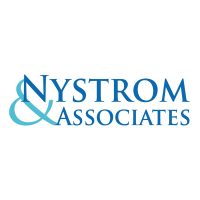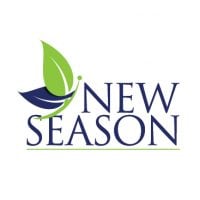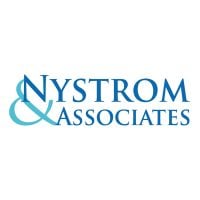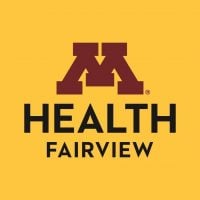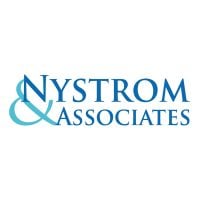Western Star
Drug Rehab Center in Sauk Rapids, Minnesota
Western Star is an accredited addiction and mental health treatment facility in Sauk Rapids, Minnesota that offers a customized range of services, including residential, inpatient, and outpatient treatment options such as detoxification, therapy, life skills development and aftercare planning, as well as private health insurance coverage to ensure the best quality care while maintaining financial stability during recovery.
About Western Star in Minnesota
Western Star, nestled in Sauk Rapids, Minnesota, stands out as a Certified Corporate Adult Foster Care home offering a unique blend of long or short-term residential care. Catering to individuals requiring 24-hour supervision, this facility is dedicated to providing supportive services around the clock, ensuring residents have access to necessary external services.
- 24/7 Supportive Services: Round-the-clock care ensures individuals always have access to the support they need.
- Flexible Care Options: Offers both long-term and short-term residential care tailored to individual needs.
- Access to External Services: Residents can easily access and receive external services for which they are eligible, enhancing their care experience.
Western Star is recognized for its commitment to quality, backed by state license certifications. This accreditation underscores the facility's dedication to maintaining high standards of care. The affiliation with Thrive Behavioral Network further enhances its credibility, ensuring reliable and quality services for those in need.
The facility specializes in treating individuals struggling with substance abuse, drug addiction, alcoholism, and mental health issues. By offering a spectrum of care levels, including residential, inpatient, and outpatient programs, Western Star tailors treatment to individual needs, employing evidence-based therapies and personalized care plans aimed at fostering long-term recovery.
Genders
Ages
Modality
Additional
Accreditations
State License
Conditions and Issues Treated
Substance Abuse Treatment is important when getting sober, as it helps addicts learn the skills they need to live a clean life. There are many different kinds of recovery treatment, including but not limited to medication-assisted therapy, behavioral therapeutic approaches, self-help groups, and counseling. Each treatment has its benefits that help addicts recover.
Counseling can help addicts learn the skills they need to live sober lives. It can be used to treat underlying mental health issues, like depression or anxiety, that could lead to relapse. Counseling can also help people find work, deal with family problems, and learn to manage living without drugs.
Levels of Care Offered
This center offers a variety of custom treatment tailored to individual recovery. Currently available are Inpatient, Outpatient, Residential, with additional therapies available as listed below.
Inpatient treatment is a form of recovery used in drug rehab. Inpatient recovery offers individual therapy, groups, and family therapy to ensure that the addict has the best recovery possible. A variety of treatments are provided in this type of recovery, depending on what treatment the addict needs at that particular time.
The length of inpatient addiction treatment depends on the addict and their addiction. Inpatient rehabilitation can last anywhere from 30 days to 90 days, depending on how severe the drug abuse is. Inpatient rehab is a costly drug treatment, costing anywhere from $30k- to $60k. However, insurance often offers help in covering these costs.
Alcohol or drug addiction, or co-occurring disorders, are treated in an outpatient program. The patient must attend therapy and other programs at the facility but can return home each night.
Outpatient treatment allows recovering addicts to live at home while receiving addiction treatment. Outpatients can attend group sessions for a few hours per week. Outpatients may also continue to work full time and study/attend school without interruption if they choose.
Residential treatment programs are those that offer housing and meals in addition to substance abuse treatment. Rehab facilities that offer residential treatment allow patients to focus solely on recovery, in an environment totally separate from their lives. Some rehab centers specialize in short-term residential treatment (a few days to a week or two), while others solely provide treatment on a long-term basis (several weeks to months). Some offer both, and tailor treatment to the patient’s individual requirements.
Therapies & Programs
Different people react differently to various treatment options. Some drug rehabilitation centers offer individualized treatment that caters to the specific needs of a drug addict. The best treatment option varies on an individual depending on the type of drug abused, life history, medical condition of the person, social circumstances, and the environment they live in now.
When a person enters drug rehab, they usually have anti-drug associations such as withdrawal symptoms, stress, cravings, etc. The first step of drug rehab is to detoxify the body from any residual substances in it. Drug rehabilitation centers usually employ trained medical professionals to help in this process. Usually, the initial detoxification lasts for five days, where the person is monitored under close supervision.
Family therapy sessions typically involve the addict and their family members. During these sessions, a therapist will work with everyone involved to help them understand addiction and find healthy ways of coping without substance abuse.
Some addicts might feel embarrassed about their substance abuse problems. By encouraging family members to attend these sessions, therapists can show addicts that they’re not alone in dealing with addiction. Therapists can also work with family members to help them understand addiction and learn how to offer support and encouragement to their loved one as they deal with substance abuse issues.
Attending group therapy at Western Star in , is a useful way for those seeking sobriety to realize they aren’t the only one going through it.
This is when a group of people on different recovery phases get together and talk about what they’re going through, their triggers, successes, and failures. This can include alternative types of therapies too! Group therapy may occur on an outpatient or inpatient basis with groups that have no pre-existing relationships outside the session, unlike support groups where everyone already knows each other beforehand.
Life Skills Services offered at Drug Treatment Centers assists addicts in their recovery by teaching them healthy coping mechanisms that will aid them in becoming sober, focussing on helping people enter into, and maintaining long-term sobriety. Drug Treatment Centers provide Life Skills Services at varying levels of intensity, specific to the needs and requirements of each patient.
Life Skills Services offered at Drug Treatment Centers assists addicts in their recovery by teaching them healthy coping mechanisms that will aid them in becoming sober, focussing on helping people enter into, and maintaining long-term sobriety. Western Star in Sauk Rapids, Minnesota provide Life Skills Services at varying levels of intensity, specific to the needs and requirements of each patient.The benefits of Life Skills Services offered at Drug Treatment Centers:
- Restores hope and empowerment — Helps addicts believe that recovery is possible and instills a new confidence in their ability to achieve a positive, drug-free future
- Enhances family involvement — Encourages families to get involved in the recovery process and supports their understanding and encouragement of healthy behavior.
- Increases patient’s compliance — Helps patients take responsibility for and ownership of their recovery and encourages continued progress
- Reduces relapse rates — Encourages long-term abstinence and emphasizes the importance of establishing sober support systems.
Good nutrition can be difficult for people recovering from addiction because they may not feel like eating while they are experiencing the physical and emotional side effects of detoxing.
Nutrition therapy can help addicts in the following ways:
- Helps individuals to understand which foods promote good health and support recovery that will assist them during detox
- Provides guidance and education about how to maintain a nutritious diet so they can stay healthy during recovery
- Improves their overall health and well-being, which can reduce the severity of substance withdrawal symptoms.
Nicotine replacement therapy is a popular method of treatment that helps individuals overcome their addiction to cigarettes by providing them with safer alternatives. Nicotine replacement options can include:
- Inhalers
- Gum
- Patches
These treatments are often used in combination with other therapies, such as cognitive behavioral therapy or motivational interviewing, to help individuals more easily transition into a smoking-free lifestyle.
Patient Experience
Experiential Therapy at Western Star
Experiential therapy is a type of therapeutic approach that focuses on having patients work through problems, issues, or emotions by engaging directly in some real experience. It occurs face-to-face with a therapist who helps these people to explore their feelings first hand. The hope is that when this happens, the patient will feel driven to turn away from their destructive behavior and instead take up positive behaviors or coping mechanisms. Direct experience methods, role play, psychodrama, interpersonal and social learning are a few different forms of experiential therapy.
Fitness Therapy
To recover from addiction, one needs to recover the body and mind. Addiction can harm your health in many ways. Learning how to take care of yourself includes physical fitness. Exercise releases feel-good hormones and further contributes to positive self-esteem. Self-discipline can be practiced through an exercise regimen as you learn how to take care of yourself. Studies have shown that exercise increases abstinence rates, ease withdrawal symptoms and improve depressive symptoms for those in Sauk Rapids, MN.
Payment Options Accepted
For specific insurance or payment methods please contact us.
Is your insurance accepted?
Ask an expert, call (888) 674-0062
Thrive Behavioral Network Associated Centers
Discover treatment facilities under the same provider.
- Nova House Intensive Residential Treatment Services in New Ulm, MN
- Austin Manor in Austin, MN
- Gull Harbour in Moorhead, MN
- Willow Haven Intensive Residential in Lake Elmo, MN
- Milestones in Alexandria, MN
Learn More About Thrive Behavioral Network Centers
Additional Details
Specifics, location, and helpful extra information.
Sauk Rapids, Minnesota 56379 Phone Number(320) 252-2760 Meta DetailsUpdated April 15, 2024
Staff Verified
Western Star Patient Reviews
There are no reviews yet. Be the first one to write one.
Sauk Rapids, Minnesota Addiction Information
Minnesota is fighting an opioid epidemic that is leaving hundreds of its residents dead each year. Both prescription opioids and illicit opioids are widely abused in the Land of 10,000 Lakes. Heroin continues to be one of the most commonly abused drugs in the state, if not the most common illicit drug. Over 10% of all treatment admissions in Minnesota list heroin as their drug of choice.
The city of Sauk Rapids, MN has just over 12,000 people. There are a number of different types of drugs that are commonly abused. People need to be aware of the problem and seek help if they or someone they know are struggling with addiction. The average cost of a 30-day drug treatment program is $12,000.
Treatment in Nearby Cities
- Monticello, MN (28.0 mi.)
- Hastings, MN (88.0 mi.)
- Morris, MN (84.5 mi.)
- Big Lake, MN (28.7 mi.)
- Duluth, MN (128.3 mi.)
Centers near Western Star
The facility name, logo and brand are the property and registered trademarks of Western Star, and are being used for identification and informational purposes only. Use of these names, logos and brands shall not imply endorsement. RehabNow.org is not affiliated with or sponsored by Western Star.



